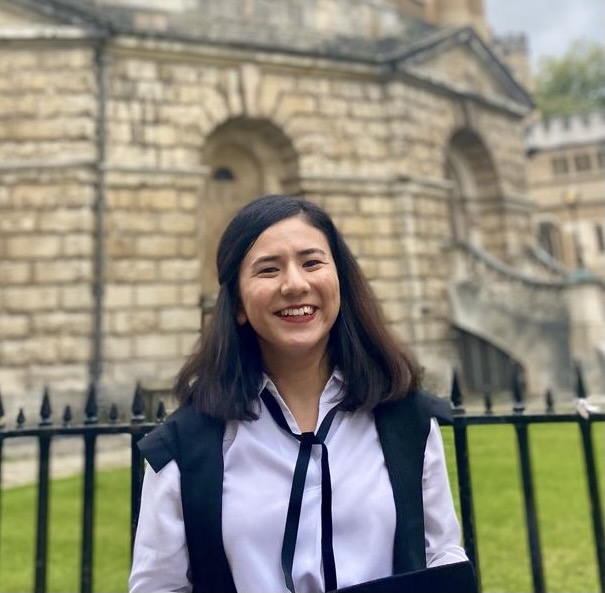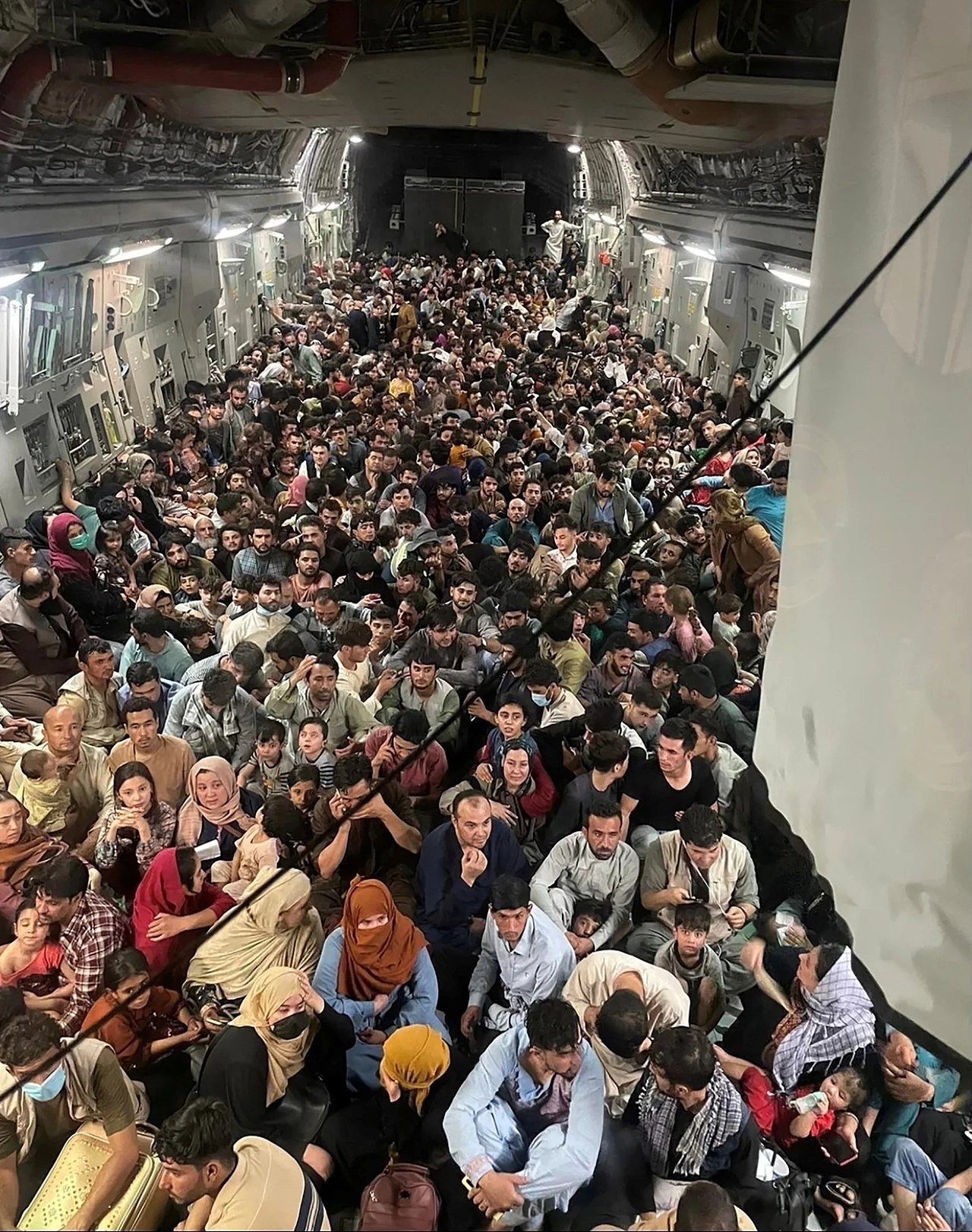The shockwaves from the rapid collapse of the Afghan government and the Taliban takeover since 15th August have been keenly felt across the University of Oxford. They have hit Oxford Afghan students, led to safety concerns for academics in Afghanistan from Oxford Colleges, and resulted in discussions about how the University and members of its community can help.
Summia Tora, an Afghan Oxford student currently pursuing a Master of Public Policy, spoke to Cherwell about her experiences of the past two weeks.
“I don’t think I’ve had a chance to process any of this yet,” Ms Tora expressed, referring to how she has been working day and night to get her father, uncle, and other families safely out of Afghanistan. “I’ve just been in crisis and problem-solving mode.”

As the crisis in Afghanistan was unfolding, with the Taliban takeover imminent, Ms Tora launched an emergency GoFundMe campaign to pool resources to get her father and uncle to safety. Through a whirlwind of efforts, both family members have now been safely evacuated and are awaiting resettlement. Now, she is directing her care and attention to other families trying to leave Afghanistan.
Ms Tora grew up in northwest Pakistan, where her family fled to in the 1990s to escape the Taliban. She was awarded a United World Colleges Scholarship to attend high school in the United States and later a Rhodes Scholarship to study at Oxford University.
“The crisis that unfolded over the past two weeks in Afghanistan has only reinforced the need for the University to provide financial, emotional, and academic support to students who come from conflict zones and displaced backgrounds.” Tora underlined.
When asked about the number of families she is currently helping, Ms Tora opened an Excel Sheet of names and details, before giving a rough estimate of eight families comprising over forty people. “The list is growing,” she added. “There are lives at stake.”
When asked about how Oxford students can help, Ms Tora said: “I am creating a formal group that is long-term and sustainable where volunteers could pool resources, time, networks, and energy to directly help Afghan families.”
“Volunteers would dedicate two or three hours a week to help out with mundane but important tasks like researching or drafting documents for visa purposes,” Ms Tora explained, mentioning how the Taliban has recently announced that Afghans can leave after 31st August only if they have the proper visas.
Ms Tora is actively seeking dedicated volunteers for her group, and she can be contacted at [email protected].
Colleges: supporting Afghan students and protecting academics in Afghanistan
Somerville and Mansfield Colleges, both recognised as Sanctuary Colleges by UK charity City of Sanctuary earlier this year, have expressed their commitment to defend the right to education for women and girls in Afghanistan and protect vulnerable academics in Afghanistan.
A Sanctuary College is a college recognised as a place that fosters “a culture of welcome and safety” for those seeking sanctuary, including asylum-seekers, refugee families, and unaccompanied minors. The way such a culture manifests itself “varies greatly”, states the City of Sanctuary website.
Both Colleges have a refugee scholarship for persons with fragile immigration status. Under the current crisis, both are stressing the importance of support for academics in Afghanistan and working with British charity the Committee for At-Risk Academics (CARA) to “develop a coordinated collegiate response” on the level of “the University as a whole”.

Oriel College has announced that it will expand the number of places offered to women from Afghanistan with a scholarship from the Yalda Hakim Foundation. Ms Yakim, a prominent BBC journalist who was born in Kabul, has said she hopes the number of places will be expanded from one to five.
On 18th August, Somerville College Principal and Labour and Co-Operative Party politician Jan Royall spoke in the House of Lords emergency debate. Principal Royall requested that the Government accept more Afghan refugees, urged protection for women and girls who had been on cultural exchanges to the UK, called for academics to become eligible for the Afghan Relocation and Assistance Policy (ARAP), and recommended that Afghan students in the UK be granted refugee status.
Call for universities to house Afghan refugees
A Statement on the Afghanistan Crisis and Oxfordshire’s Response, signed by six County and City Councillors in addition to sixteen organisations supporting refugees, has called both Oxford universities “to help identify and make available possible accommodation and support” for Afghan refugees, as was done “effectively to house homeless people during Covid”.
The Oxford Mail has also published a similar suggestion made by representatives of charities that support refugees and asylum-seekers, including KAMA, Asylum Welcome and STAR Oxford. These charities have urged Oxford University and other universities across Oxfordshire to use their “massive” accommodation resources to help Afghan newcomers. The Mail also published responses from its readers, which include a significant portion of skeptical voices stressing, “Charity begins at home” and “think about our homeless first”.
Oxford’s local authorities and educational institutions have been taking steps to address these concerns. Last year, Oxfordshire’s county and district councils, supported by homelessness charities Crisis, St Mungo’s, Aspire, and the Oxford Homeless Movement, collaborated with Nuffield College, University College, and Oxford Brookes University to start providing long-term housing for people experiencing rough sleeping in Oxford. These efforts were based on the council’s housing-led approach to homelessness, the first of its kind in the country.
Nuffield provided 16 spaces for two years, University College 12 bed spaces on a rolling license, and Oxford Brookes University’s Canterbury House 76 rooms for a year. Due to these efforts, in March 2021, homelessness in Oxfordshire nearly halved from an estimated 83 people in 2019 to 45 people in 2021, as reported previously by Cherwell.
Student Groups: “What brings students together is their heart and brain for human rights”
Student organisations such as the Oxford Student Union have called for College and departmental support for current and future Afghan students at Oxford, and offered wellbeing support from the SU and the University Counselling Service.

A statement from the SU said: “Today is not the first difficult day for the people of Afghanistan but our Student Union recognizes [sic] that the ongoing events will leave the hearts of many heavy. As your elected representatives, we want to ensure all students feel supported by the SU and offer our solidarity with Oxford’s Afghan students and students who may be personally affected by recent events in Afghanistan.We recognise the trying and unjust situations this will put some of our students in and the SU is committed to making sure that affected students are given all the support and resources they need and the opportunities they deserve.We want to remind students that they are not alone, and someone is always here to listen and offer wellbeing support.”
The Oxford SU Women’s Campaign has also expressed its solidarity, provided links for donations to Afghan refugees and charities, and condemned the repression faced by “women*, children, religious minorities, journalists and members of the LGBTQ+ community”.
Almas Farzi, Services Director at local refugee charity Asylum Welcome, urged students and student groups across Oxfordshire to “come forward and do their bit” at a community meeting attended by more than fifty organisations on 20th August.
“Asylum rights should be at the heart of human rights,” appealed Farzi, “and student unions and students have always, always played a major role in terms of more public awareness, in terms of standing up for human rights, for refugees’ rights, and particularly for asylum rights.”
Farzi encouraged students interested in helping Afghan asylum seekers and refugees to get in touch with Asylum Welcome and similar organisations. He also highlighted the opportunity for students to serve as “a bridge between Afghan communities, refugee organisations and the public” and “depict what is happening” in Afghanistan and within Afghan communities.
“[Students and student groups] can participate in reflecting the society that we ought to be in terms of solidarity, support, and togetherness. Regardless of different opinions, what brings students together is their heart and brain for human rights.”
Image: Public Domain


